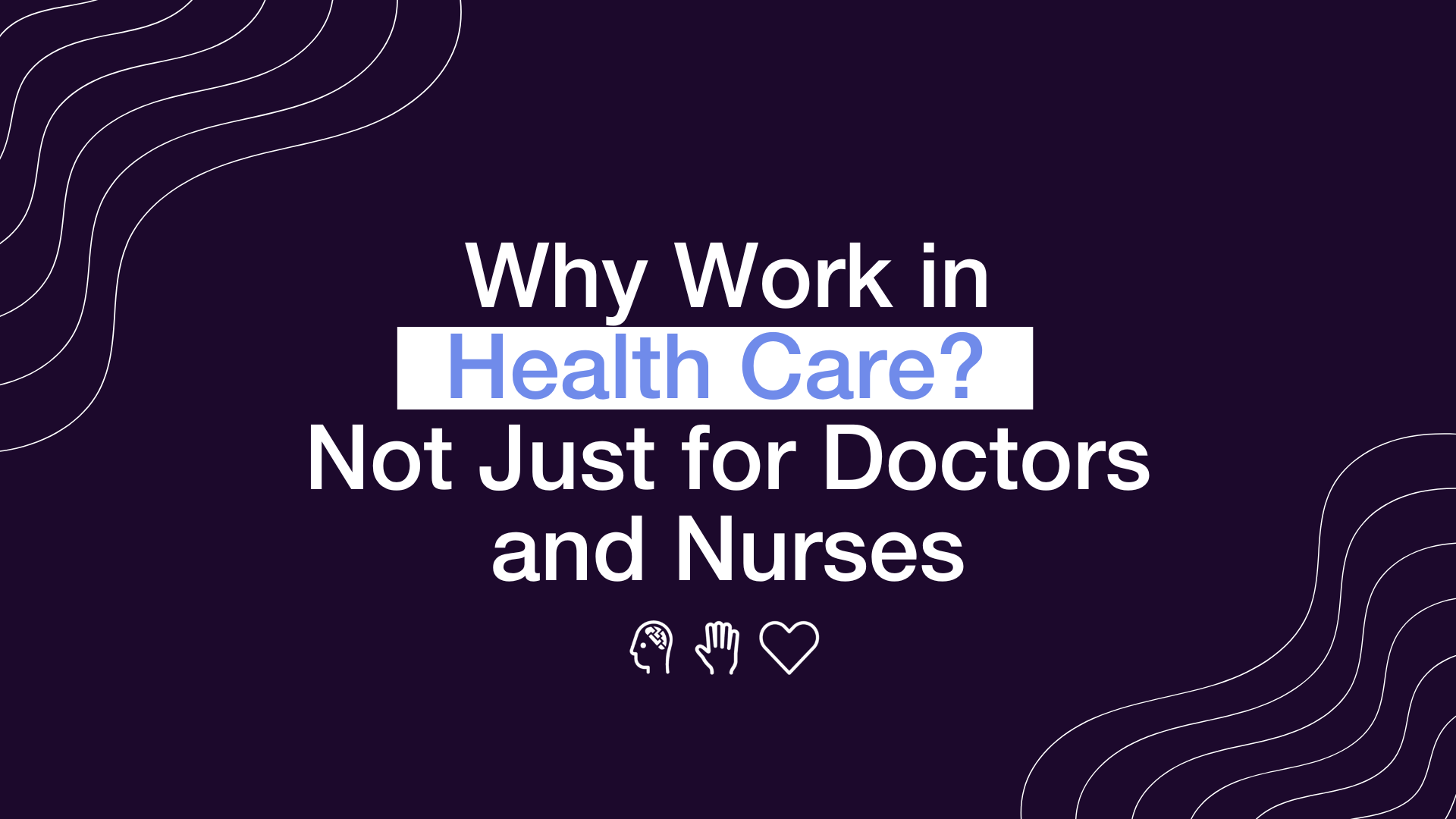
Why Work in Health Care? Not Just for Doctors and Nurses
When people think of careers in health care, roles like doctors and nurses typically come to mind. However, the health sector is vast and requires a diverse range of professionals to keep it running smoothly. Many lesser-known but essential roles exist that offer fulfilling careers, often without the need for advanced medical training.
Here are some not-so-typical health care roles that make a significant impact on patient care and the overall health system:
- Behavioral Health Technician
- Environmental Services
- Nursing Informatics Specialist
- Administrative Assistant
- Medical Translator
Behavioral Health Technician
Behavioral health technicians play a crucial role in supporting mental health professionals. They assist in providing care to individuals struggling with mental health issues, substance abuse, or behavioral disorders.
Behavioral health technicians monitor patients, facilitate group therapy sessions, and assist in treatment plans developed by psychologists or psychiatrists. They are key players in the growing mental health field, helping individuals achieve stability and cope with life’s challenges. This role is perfect for those who are compassionate, patient, and eager to support others on their mental health journey.
Learn more about this role in Mayra’s day in the life YouTube video.
Environmental Services
Often overlooked, environmental services (EVS) workers are essential to maintaining a safe and clean environment. These professionals ensure that hospitals, clinics, and other medical facilities remain sanitized to prevent the spread of infections. EVS staff clean patient rooms, operating rooms, and communal areas, all while adhering to strict health and safety protocols. Their work has a direct impact on patient outcomes by reducing the risk of hospital-acquired infections.
If you’re detail-oriented and enjoy contributing to a healthier, safer environment, a role in environmental services could be a great fit.
Learn more about this role in Madelyn’s blog post.
Nursing Informatics Specialist
As technology becomes increasingly integral to patient care, nursing informatics specialists are bridging the gap between clinical care and information technology. These professionals manage and analyze data to improve health care delivery. Nursing informatics involves designing and implementing electronic health record systems, ensuring data accuracy, and training nurses on new technologies.
The role is ideal for those who have a passion for both nursing and technology, as it helps create a more efficient and effective care environment.
Learn more about this role in Pascal’s experience on JoinMdHealth’s Instagram post or TikTok. Check out her full employee spotlight blog post here.
Administrative Assistant
Administrative assistants in health care settings provide essential support to doctors, nurses, and other medical staff by managing schedules, answering phones, handling patient records, and ensuring the smooth operation of daily activities.
They are often the first point of contact for patients, making them integral to the patient experience. Administrative assistants ensure that medical offices and departments are well-organized, allowing health care providers to focus on patient care.
This role is ideal for those with excellent organizational and communication skills who want to be part of a fast-paced health care environment without direct clinical involvement.
Medical Translator
Medical translators play a vital role in bridging communication gaps between health care providers and patients who speak different languages.
In an increasingly diverse world, language barriers can impede the quality of care, and medical translators help ensure that patients fully understand their diagnosis, treatment options, and medical procedures. They may work in person, over the phone, or through video services, translating complex medical jargon into understandable language.
This role is perfect for bilingual or multilingual individuals passionate about helping patients navigate the health care system with clarity and confidence.
Bottom Line?
This field offers far more than clinical roles. From behind-the-scenes technical support to front-line patient interaction, careers from Behavioral Health Technicians to Medical Translators are essential to the overall success of the health care system. These roles not only support doctors and nurses but also play a direct part in improving patient care, safety, and outcomes.
If you’re looking for a meaningful career in health care that doesn’t involve direct medical practice, these lesser-known paths could be an ideal choice.
For more information or to apply for jobs visit our careers webpage at JoinMdHealth.org/careers!